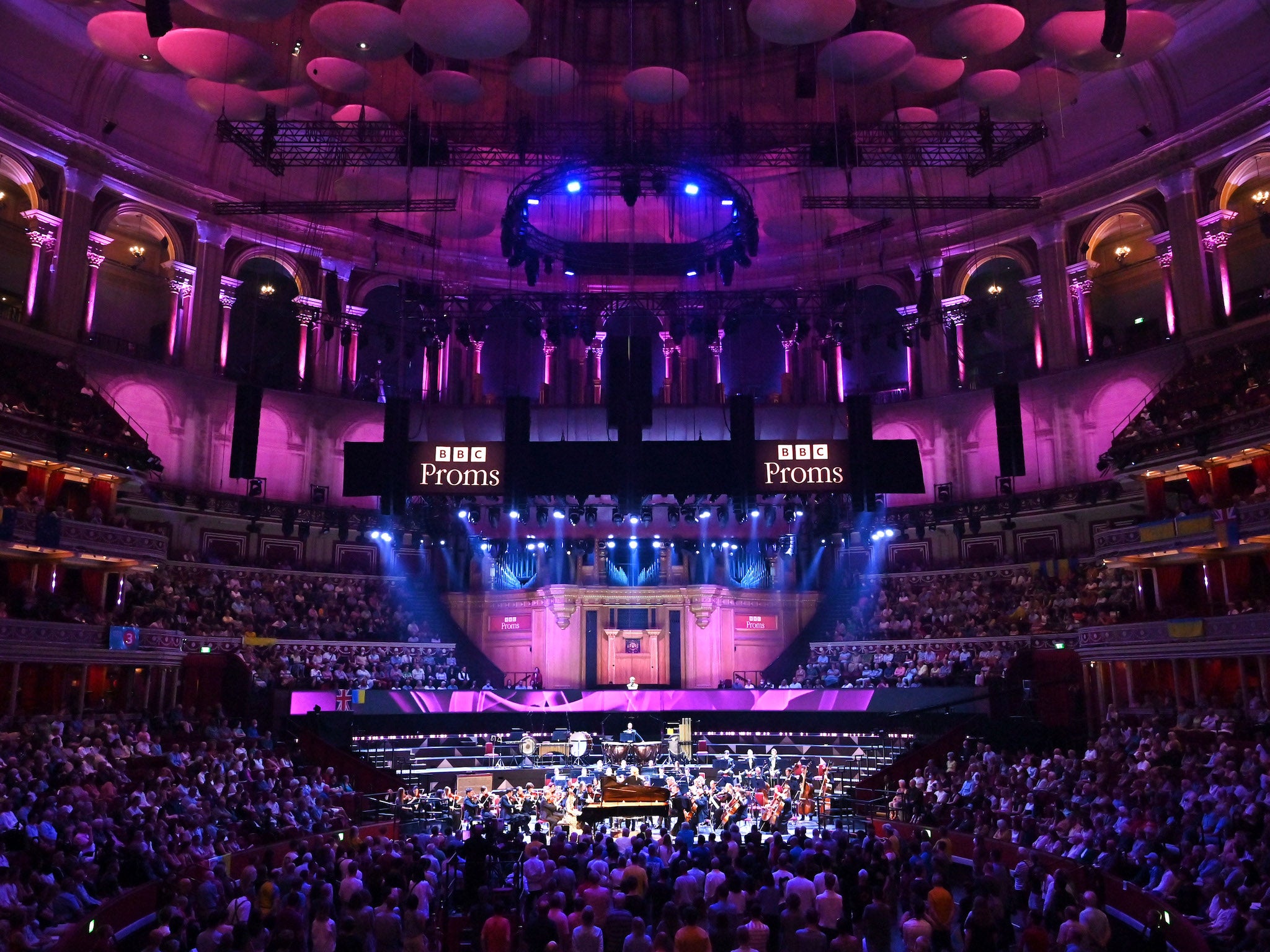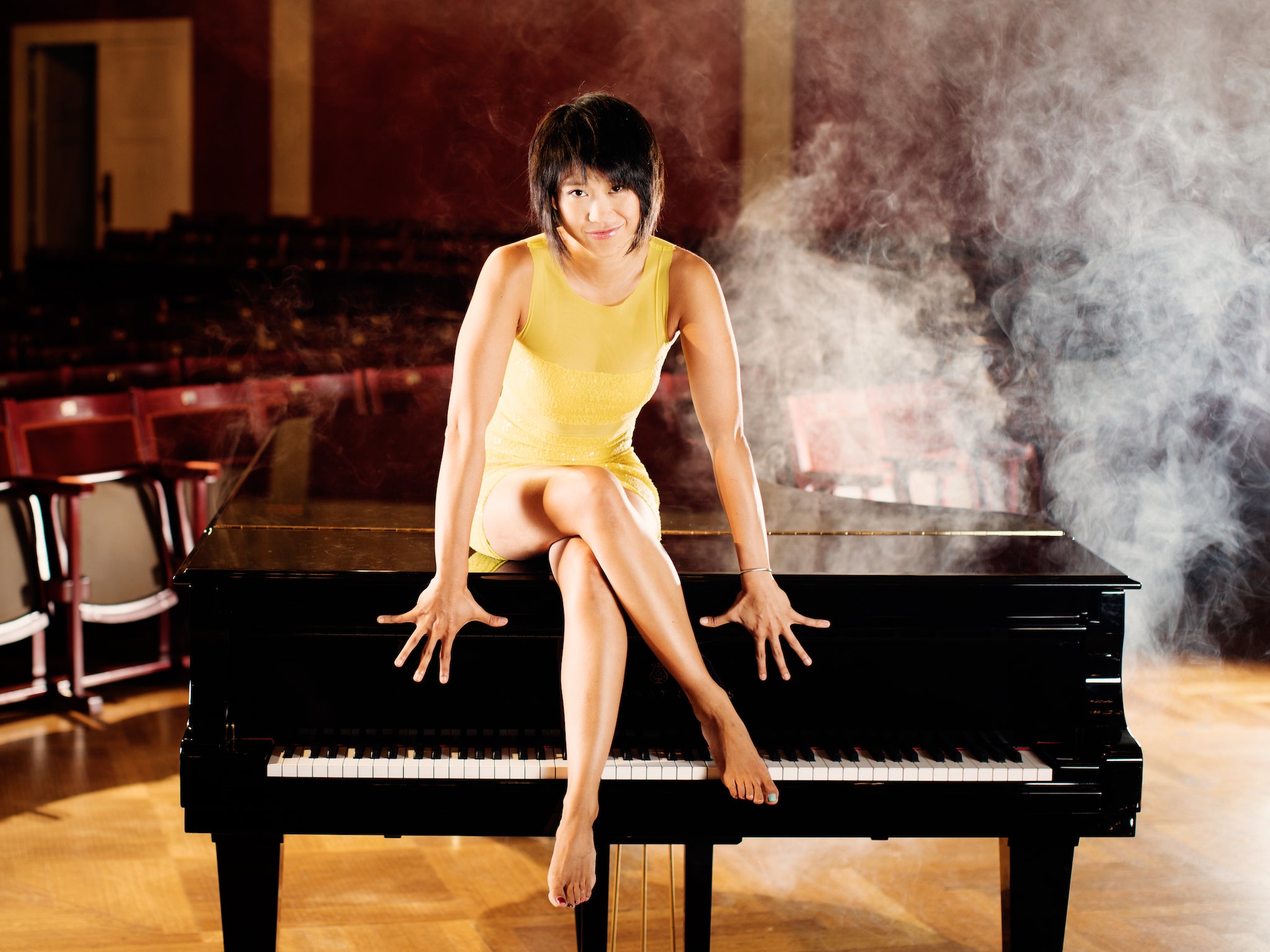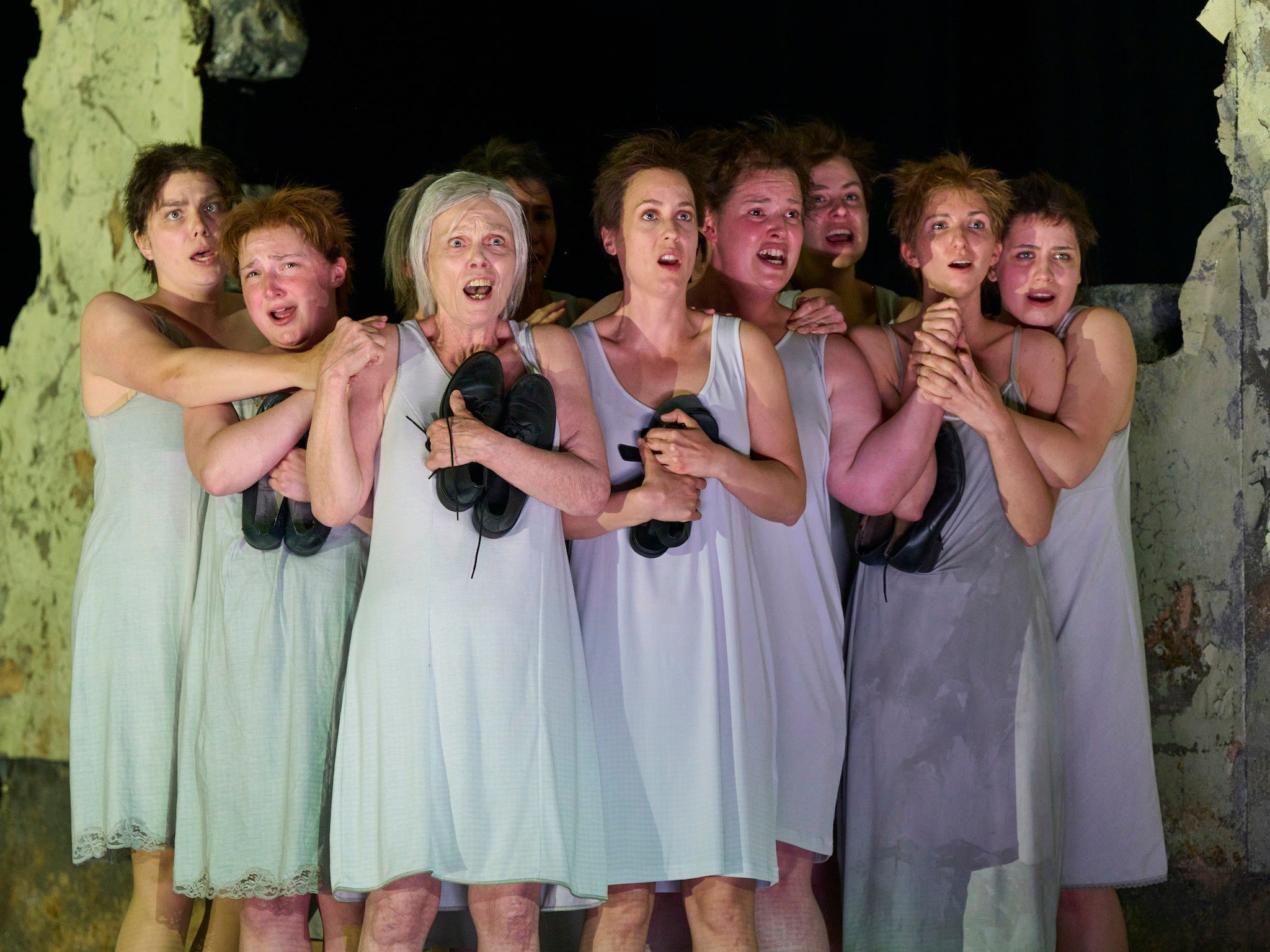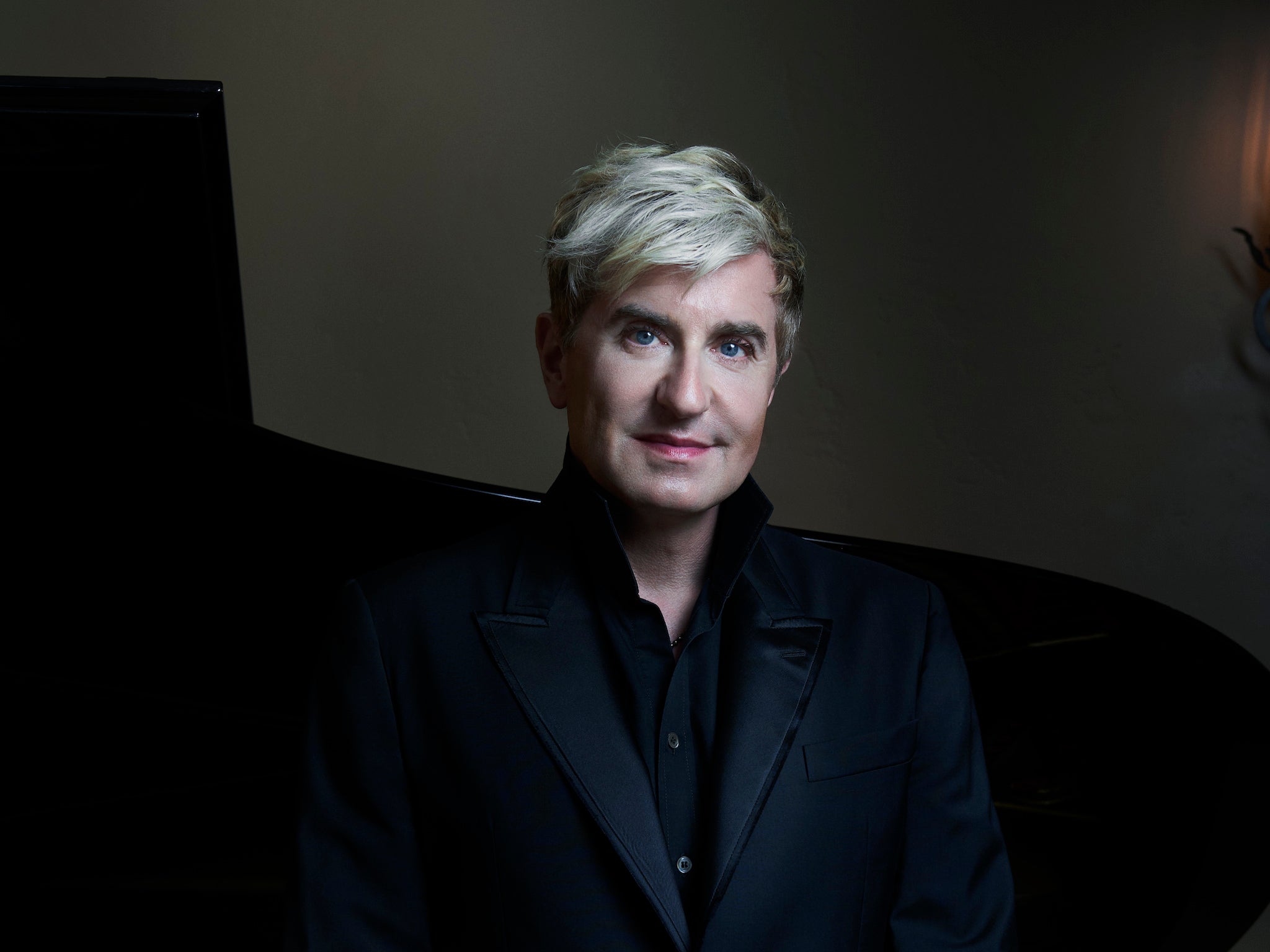From Mozart’s unfinished final masterpiece to an absurdist Samuel Beckett opera: our picks for the 2023 Proms
Prom season is back, with the world’s biggest classical music festival kicking off this weekend. Michael Church selects his highlights

It’s very good to have the Proms back, even if they’ve not yet completely recovered from a pandemic which almost halted them, while recent machinations within the BBC are still taking their toll. The official Proms brochure makes no mention of the BBC Singers because it went to press after they had all been sacked, but before the BBC relented under pressure and permitted the singers a new lease of life. So we only learned online that this excellent group will indeed be performing in some interesting experimental works they themselves have commissioned (Prom 69a).
This year there is the familiar mixture of highbrow and lowbrow fare, with the usual bits of modish box-ticking. There will be a Mindful Mix Prom (34), and the English National Opera will participate in two Horrible Histories Proms (10 and 11). Proms around the UK will take place in Aberystwyth, Dewsbury, Derry, and Great Yarmouth, in the hope that the BBC will get brownie points for regional inclusiveness. The anniversaries being celebrated will include those of William Byrd, Sergei Rachmaninov, and Gyorgy Ligeti, guaranteeing – particularly in the case of the latter – much fine and seldom-heard music.
Here are my personal choices:
Prom 1: First Night of the Proms
This is always a crowd-pleasing event, with a mixture of tried and trusted numbers plus a shot in the dark, the latter being, on this occasion, a specially commissioned piece by the Ukrainian composer Bohdana Frolyak. Everything else will please, from Britten’s The Young Person’s Guide to the Orchestra to Sibelius’s Finlandia and Grieg’s evergreen Piano Concerto in A minor in the hands of the British pianist Paul Lewis. The charismatic Finnish conductor Dalia Stasevska will be on the podium. 14 July, Royal Albert Hall
Proms at Londonderry: William Byrd, England’s Nightingale
This year marks the 400th anniversary of the death of one of the greatest Renaissance composers, and a first-ever Proms excursion to this Northern Ireland city. There could be no better exponents of his poised and beautiful style than Stile Antico, the British a cappella ensemble who will do the honours here. Byrd was a practising Roman Catholic when to be that could have you executed, and the coiled intensity of his music must reflect that ever-present fear. 15 July, Guildhall, Derry
Prom 7: Beethoven’s Fifth Symphony
The Black British composer Samuel Coleridge-Taylor (1875-1912) is currently enjoying a vogue, in part thanks to his championing by the Chineke! Orchestra, Europe’s first majority-Black and ethnically diverse orchestra. Of mixed-race birth, and famous both as a musician and composer, Coleridge-Taylor was known to American musicians during his lifetime as the “African Mahler”. In this Prom, the solo part of his Violin Concerto will be taken by Elena Urioste, who describes it as “one of the most emotionally direct, sumptuous, romantic works I’ve ever had the pleasure of playing”. 19 July, Royal Albert Hall
Prom 9: Mariza sings Fado
Portuguese fado is quintessential cafe music, traditionally performed by a trio – a singer accompanied by Portuguese guitar and bass – who move from one house to another in the course of an evening; fado means “fate”, and the dominant emotion is nostalgia. And that is how it was until Mariza surfaced from the ranks of the fadistas: as we will see in her Prom, she’s turbo-powered it without destroying its unique character. Her lyrics are poems of a literary kind, and her music is wonderfully addictive. 21 July, Royal Albert Hall

Prom 18: Lata Mangeshkar, Bollywood legend
The music of the late Lata Mangeshkar will transport us eastwards. This Bollywood star, who died last year, is going to be celebrated by a posse of Indian singers all paying tribute to a singer who really was the voice of India. Songs in Indian films are hardly ever sung by the actors themselves: “playback” singers do that, and for almost seven decades Lata’s pure tones were what the cinema audiences heard; she recorded 50,000 songs in 14 languages. Devotees from the Indian subcontinent will pack this Prom. 28 July, Royal Albert Hall
Prom 27: Yuja Wang plays Rachmaninov
It won’t be William Walton’s Belshazzar’s Feast – admired by hardcore supporters of charmless English attempts at modernism – which fills the hall for this event. Nor will it be Jimmy Lopez Bellido’s Peru negro, though that vibrant homage to the songs and dances of Afro-Peruvian music should be exhilarating. No, the big draw will be the Chinese pianist Yuja Wang, whose elfin stage presence and peerless pianism mesmerises everyone. She’s playing Rachmaninov’s Rhapsody on a Theme by Paganini, and the sparks will fly. 4 Aug, Royal Albert Hall
Prom 29: Mozart’s Mass in C Minor
Mozart’s unfinished Mass in C minor was his last masterpiece: it’s thrillingly beautiful, and will crown a lovely late-night Prom. It was inspired by Mozart’s admiration for the music of both JS Bach and his son CPE Bach. The rest of this Prom’s programme is also special – music by the Bachs father and son, and delivered by a superb line-up of soloists including sopranos Lucy Crowe and Nardus Williams and tenor Benjamin Hulett, supported by the Dunedin Consort, directed by John Butt. 6 Aug, Royal Albert Hall

Prom 31: Poulenc’s Dialogues of the Carmelites
Of all the operatic Proms this year, the one to go for is Glyndebourne’s contribution – a semi-staged performance of Barrie Kosky’s inspired production of Les dialogues des Carmélites. I’ve never seen an audience look so stunned as they filed out after this shattering musical re-enactment of a true story from the French Revolution, in which a colony of nuns are imprisoned and finally executed on the guillotine, with the orchestra savagely marking each fall of the blade. The cast – led by soprano Sally Matthews – are outstanding, as is the music direction by Robin Ticciati; the whole event has a terrible beauty. 7 Aug, Royal Albert Hall
Prom 36: A Space Odyssey
Most of us know the ringing sunrise theme which introduces Stanley Kubrick’s film 2001: A Space Odyssey, but it’s generally forgotten that the music is Richard Strauss’s Also Sprach Zarathustra, which the London Philharmonic Orchestra and Choir will perform here under the direction of the British conductor Edward Gardner. This concert will also draw on two other works used in that film, both by Gyorgy Ligeti, who was one of the boldest musical innovators of the 20th century. This will be an evening of musical magnificence. 11 Aug, Royal Albert Hall
Prom 43: Gyorgy Kurtag’s Endgame
There’s plenty of easy listening in this year’s Proms, but this particular Prom is at the provocative other extreme: it will present the UK premiere of Gyorgy Kurtag’s opera on Samuel Beckett’s absurdist masterpiece Endgame, which has had rave reviews in New York. This performance will be semi-staged without an interval, sung in the original French, and subtitled in English: some people may find this impossibly daunting, but others will relish the work’s intellectual challenge. The contralto who dominates the action will be the extraordinary Hilary Summers. 17 Aug, Royal Albert Hall

Prom 55: Gershwin’s Piano Concerto
Gershwin’s music is very much in the air at present, and in this Prom, Jean-Yves Thibaudet (whose other life is as a fashion model) will play his Piano Concerto in F major. This will complement the European premiere of Carlos Simon’s Four Black American Dances, which draw on dances that chart the Black American experience from slavery to the present day. This particular programme is unusually rich, including as it does Stravinsky’s Petrushka and Ravel’s La valse, whose structure reflected the death and destruction of the First World War. 26 Aug, Royal Albert Hall
Prom 70: Rachmaninov’s Third Piano Concerto
The penultimate Prom will be fascinating, its centrepiece being a performance of Rachmaninov’s towering Piano Concerto No 3 in D minor by the Japanese pianist Nobuyuki Tsujii. He is blind, and has been from birth; how he manages to master mountains of notes in virtuoso works like this is a mystery. His routine is always the same: he is led to the piano, and carefully strokes the keyboard several times from end to end – getting the geography of the terrain sorted out – before launching into the work. But once launched, he’s always magnificently in control. 8 Sept, Royal Albert Hall
Join our commenting forum
Join thought-provoking conversations, follow other Independent readers and see their replies
Comments


Bookmark popover
Removed from bookmarks